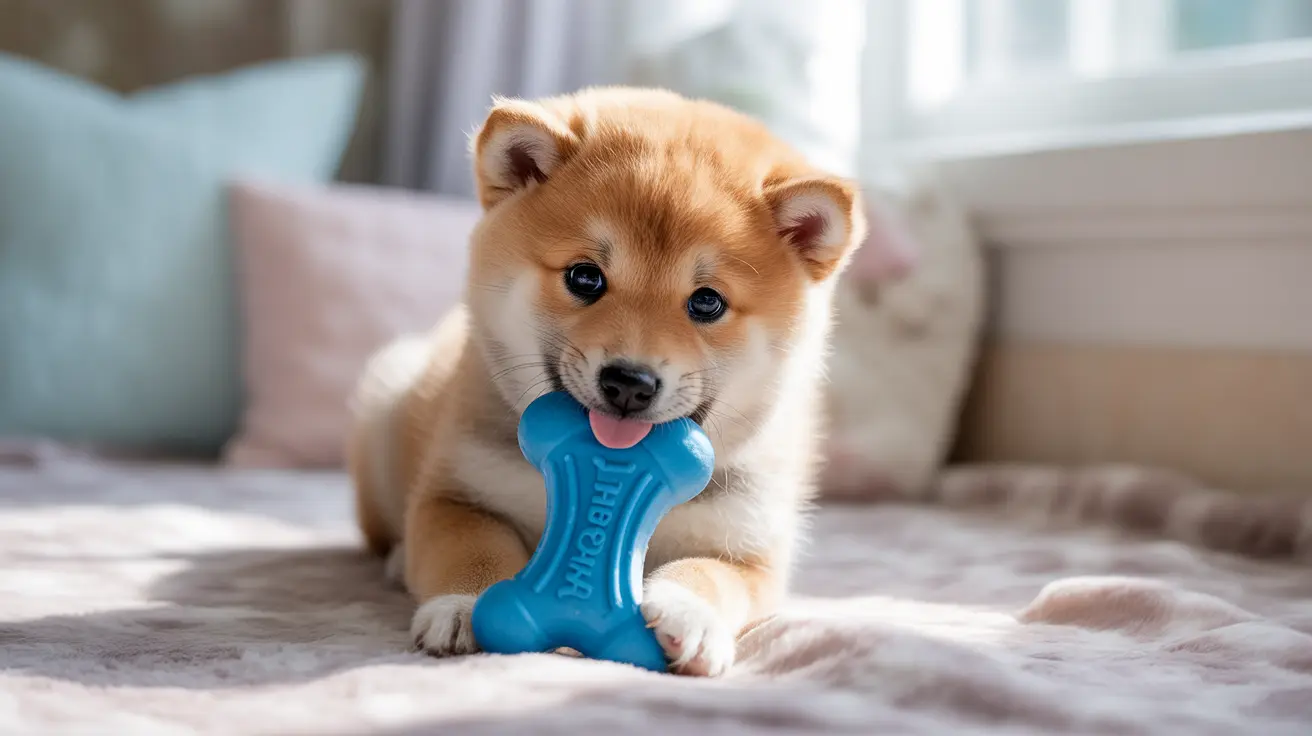If you're a new puppy parent, understanding the teething timeline is crucial for your furry friend's development. Puppies go through a significant dental transformation in their first few months of life, transitioning from no teeth at birth to a full set of 42 adult teeth by around six months of age.
This comprehensive guide will walk you through everything you need to know about puppy teething, from when puppies start losing their baby teeth to managing the challenges that come with this natural developmental stage.
The Complete Puppy Teething Timeline
Puppies begin their journey completely toothless at birth. By 2-3 weeks of age, their first baby teeth (also called deciduous or milk teeth) start to emerge. Here's what happens next:
Birth to 8 Weeks
During the first two months, puppies develop their complete set of 28 baby teeth. These teeth are sharp and designed for their early nutritional needs as they transition from nursing to solid food.
3-4 Months: The Beginning of Tooth Loss
Around 12-16 weeks, puppies begin losing their baby teeth. The process typically starts with the incisors at the front of the mouth. You might find tiny teeth around your home, though many puppies swallow them while eating.
When Do Puppies Stop Teething?
The teething process usually concludes around 6-8 months of age. By this time, your puppy should have all 42 permanent adult teeth. However, the exact timeline can vary depending on breed size and individual development.
Managing the Teething Phase
During this transitional period, puppies need extra support and attention. Here are some essential care tips:
- Provide appropriate chew toys designed specifically for teething puppies
- Offer frozen or cold toys to help soothe sore gums
- Monitor for retained baby teeth that might require veterinary intervention
- Maintain regular dental check-ups to ensure proper tooth development
Signs Your Puppy Is Teething
Recognizing teething symptoms helps you better support your puppy through this challenging phase. Watch for:
- Increased chewing behavior
- Red or swollen gums
- Drooling more than usual
- Small blood spots on toys
- Slower eating or temporary loss of appetite
- Mild irritability
Supporting Your Puppy's Dental Health
Establishing good dental care habits during the teething phase sets the foundation for lifelong oral health. Consider these practices:
- Begin gentle tooth brushing early to establish routine
- Choose size-appropriate chew toys
- Avoid hard objects that could damage developing teeth
- Schedule regular veterinary dental check-ups
- Monitor for signs of dental problems or complications
Frequently Asked Questions
At what age do puppies start losing their baby teeth, and how long does the teething process last?
Puppies typically start losing their baby teeth around 3-4 months of age. The entire teething process, from losing baby teeth to gaining all adult teeth, usually lasts about 2-3 months, concluding around 6-8 months of age.
How do I soothe my puppy's teething pain, and what are the best toys for this stage?
Provide specially designed puppy teething toys, frozen washcloths, or puppy-specific chew toys. Cold items can help numb sore gums. Always supervise chewing and choose age-appropriate toys.
Why do puppies chew excessively during teething, and how can I redirect this behavior?
Puppies chew to relieve teething discomfort and explore their world. Redirect chewing to appropriate toys using positive reinforcement. Never punish teething behavior, as it's a natural part of development.
What are the signs that my puppy is teething, and how can I distinguish between teething discomfort and other health issues?
Teething signs include increased chewing, drooling, and mild irritability. If you notice severe pain, loss of appetite, or unusual bleeding, consult your veterinarian to rule out other health concerns.
How can I ensure my puppy's dental health during the teething stage, and what role does regular veterinary care play?
Regular veterinary check-ups are crucial during teething to monitor tooth development and address any concerns. Your vet can identify and treat issues like retained baby teeth or misalignment early.
Conclusion
Understanding when puppies lose their teeth and managing the teething process effectively helps ensure your puppy's comfort and proper dental development. With patience, appropriate care, and regular veterinary supervision, you can help your puppy navigate this important developmental milestone successfully.






